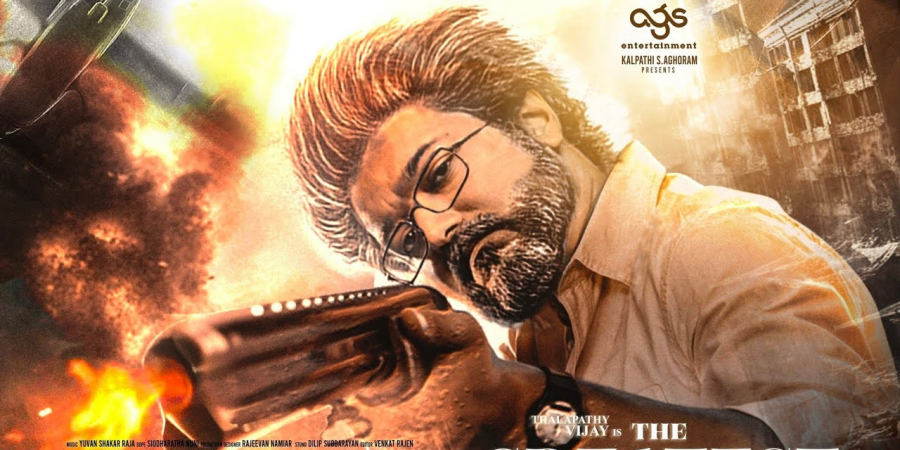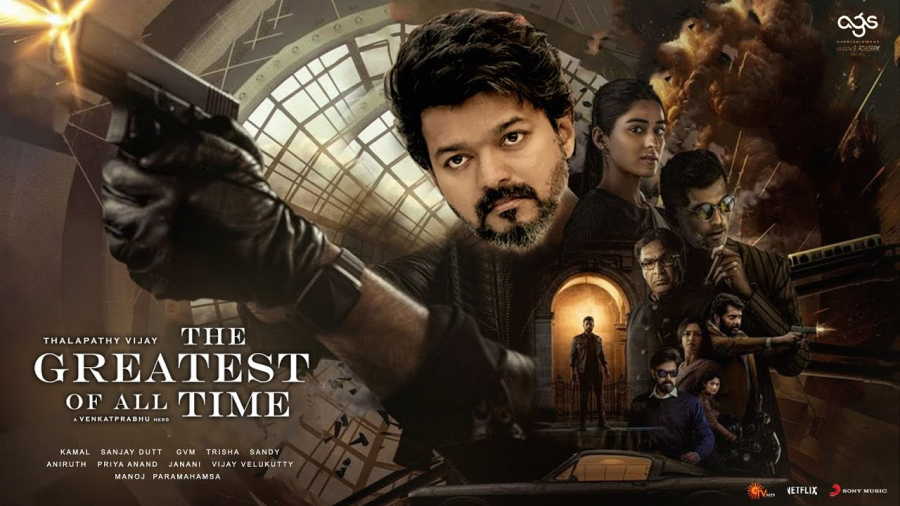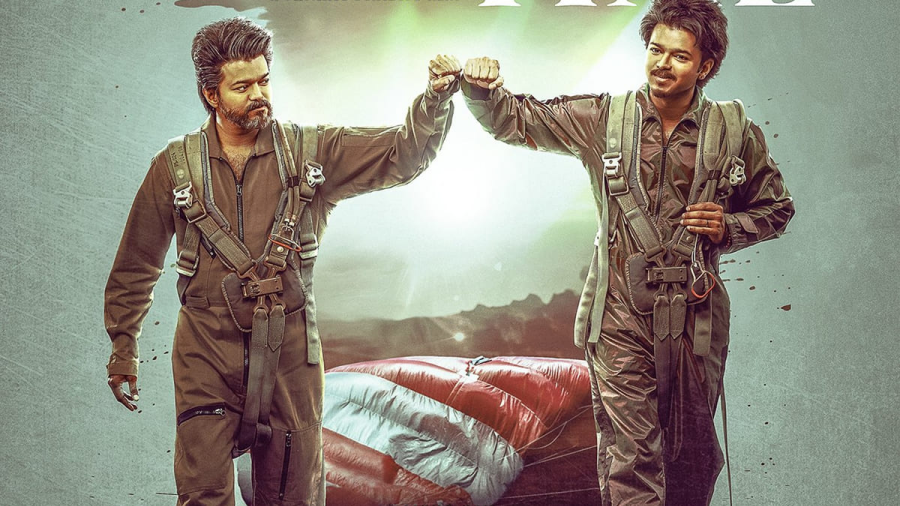

In the first part of GOAT, there's a scene where the irreverence of Venkat Prabhu movie meets the excitement of Gandhi (Vijay), an agent akin to Ethan Hunt. While lounging atop a tower at night, Gandhi answers a call from his spouse, reminding him to buy groceries. This appears to be the lot of middle-class people; aren't these kinds of details what initially drew us in to Venkat Prabhu and his cinematic style? He acted with a remarkable irreverence and gave movies a surprising sense of humor that did a great job of humanizing the characters.
You can see the director having a lot of fun with the idea while yet managing to portray Gandhi and his family and friends as actual characters in these first half sections of GOAT, around the time Anu (Sneha) suspected Gandhi of, well, not being that Gandhian. To his credit, Vijay appears liberated, having fun, and entertaining the crowd.
The movie truly does go on for a very long time after these scenes as we jump from the past to the present. The film seems hesitant to take this extremely dangerous matter seriously as the truth about Gandhi's son, Jeevan/Sanjay, comes to light. It feels as though the movie isn't sure what it wants to do with Vijay; this has nothing to do with Vijay's somewhat insane portrayal of the character. It seems odd that their reunion with Sanjay is handled as hurriedly considering how warmly and seriously the Gandhi-Anu household is introduced in the movie.
At this point, Venkat Prabhu deserves special mention for the song's lead-up and accompanying montage. Yuvan then enters the scene with a bass-heavy remix of "Sorgame Endraalum" that I really enjoyed. Gandhi's family and staff go for Thailand around this time.
In between, there were other allusions to nostalgia, including Gandhi's remarks, which are typical of celebrity cars these days. However, because this flavoring added nothing to the movie or the plot, I wasn't very disturbed by it.
During these scenes, the film does an excellent job of striking a balance between humor, innuendos, and sad moments. See how intensely Vijay and Sneha perform at that pivotal emotional moment—the latter going from moderate angst to deep sadness. This sequence, in which Venkat Prabhu sets the scene, is, in my opinion, the greatest of all time.
This is especially upsetting in light of what we discover about Sanjay's early years. Even though the film's premise has a lot of emotional potential, it feels oddly chilly and distant. Though the exploration is lacking, the ideas are present. And because of this, Mohan's Rajiv Menon never really becomes human, even if the plot is about deception and retaliation that involves a great deal of personal sacrifice. Furthermore, he doesn't provide much entertainment.
These choices appear to have been made more to temporarily appeal to the modern moviegoer—who, thanks to Instagram, appears to be conditioned to need continual dopamine rushes—than to advance the plot or the characters. Maybe the reels generation's story and character commitment is, to paraphrase Sanjay to Gandhi, "a cringe expectation from a boomer," but nostalgia-themed scenes, like the one in the first half, are most enjoyable when they are handled as flavor rather than when they are presented in an unbalanced parade.
The film's absence of a moral core is the issue—the more significant one, in my opinion. You could certainly argue that Mankatha did as well, as well as many other movies, and you would have a point, but the entire movie is set up and performed like a pack of hyenas trying to outsmart one another. However, in this instance, we are supposed to sympathize with Gandhi and be persuaded to view him as a decent man; however, there isn't even the slightest indication that Sanjay and either of his parents ever discussed his early years. Gandhi's buddies first appear to be important, but eventually Prabhudheva's Kalyan seems to be serving an artificial function, while Prashanth's Sunil struggles to truly become a human being in the face of personal tragedy.
Even though Rajiv Menon is a villain, what about the innocent lives that the "good" folks steal from him? Given the disgusting resolution, even that end, which is supposed to function as harmless entertainment, doesn't feel quite like it. The usual answer to these worries is that there isn't much time left to achieve such sentimental goals. One could counter that if a movie has time for two awkward duets, shouldn't the main narrative issues get more focus?

The movie seems to want to please practically every fandom, starting with a pretty pointless tribute to Vijayakanth. If not, why would Sanjay say, "Adhayum thaandi punidhamaanadhu" out of the blue?Are you not amused?
Worried that we would not be completely enthralled with these bewildering allusions, the movie presents us with the ultimate source of excitement in its final segment: CSK, Dhoni, and Chepauk. Nothing seems to help alleviate the situation—not a parody of the "Halamathi" step, not an odd "Father of the Nation" joke, nor even Dhoni's display of last-minute heroism. This is because the film's problem goes deeper than a surface wound. It's a fracture: a fracture of narrative, characters, and emotions. Furthermore, no amount of dopamine doses or bandaids will be able to adequately address that—at least not for me.

